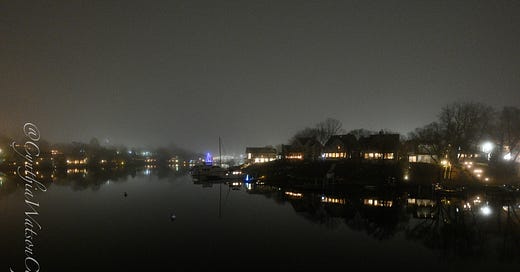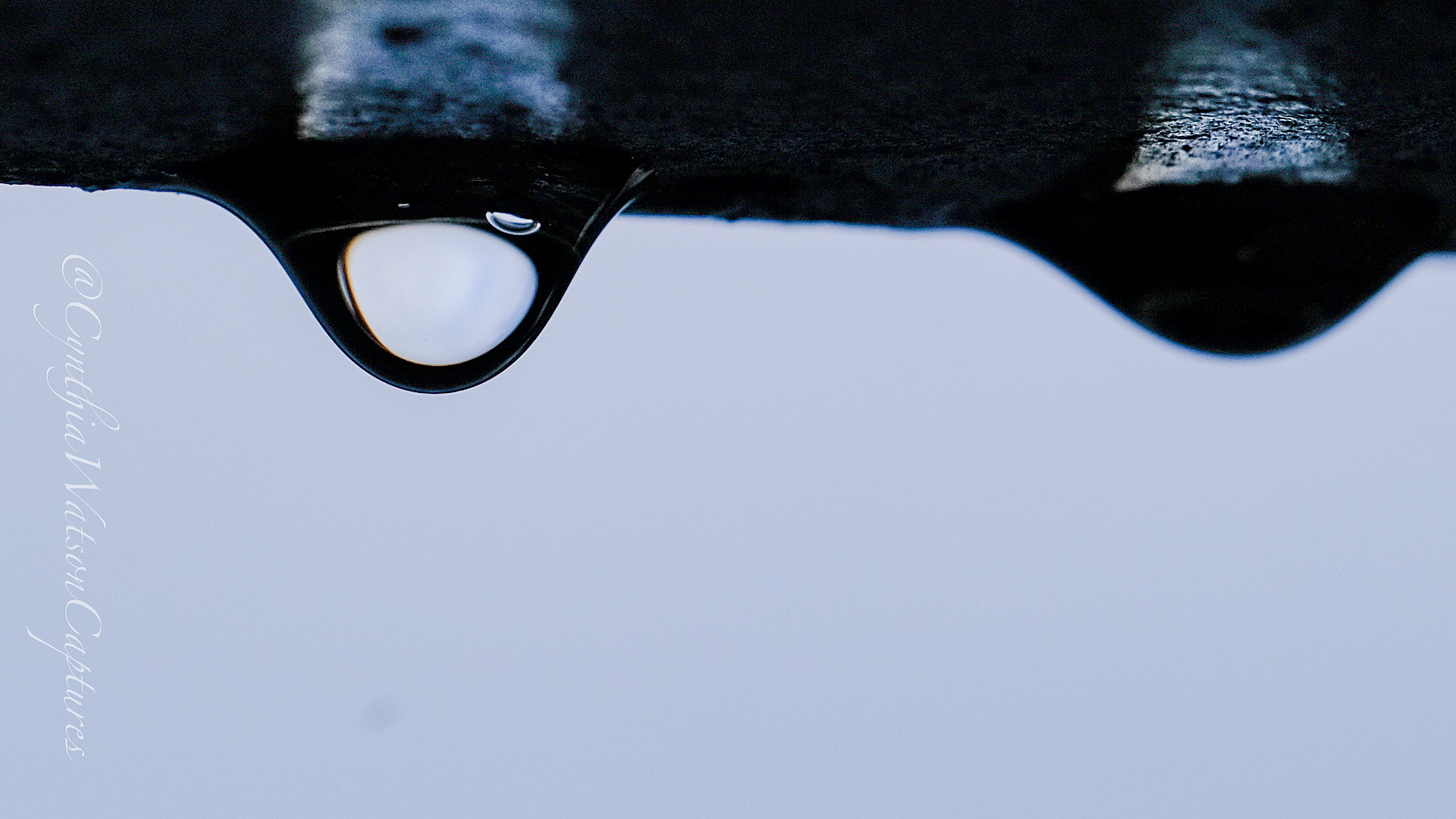What we figure was the final visiting sailboat for the 2024 season stealthily set sail yesterday. We rue that because we love looking out to feast our eyes on boats replete with visitors but, invariably, the winter draws them elsewhere. Both the last sailboat and the one that shoved off last week moored for extended periods but we understood they were highly likely to go somewhere for the winter. So, the sky cried last night—but we needed the rain.
It’s a busy time of the year, of course, particularly as one administration transitions out for the next to come in. Most people are either wrapping their Chanukkah or Christmas gifts while school kids yearn to sleep in for a week and a half.
A school shooting at a Christian school in Madison, Wisconsin, and a massive cyclone hit the western Indian Ocean yesterday. The Ukrainians, apparently not going down without a fight, killed a prominent Russian general. It’s been a busy day and a half around the world.
Are we paying sufficient attention to the fall of not one but two treaty allied-governments in three days, with another nearby looking considerably less secure today than yesterday morning? It’s easy to miss these events but they strike me as worthy our appreciation got a few minutes.
I observed week before last (has it only been fourteen days since Yoon Suk Yeol declared martial law in South Korea?) that I did not believe the Korean president could survive following the public’s demand that democracy perpetuate in that East Asian nation. The South Korean leader survived but of two impeachment votes in the parliament, effectively neutering him as president of the country. He isn’t even able to travel on his own as investigations of the coup dynamics continue.
This wouldn’t matter as much if it were Malawi or perhaps Burundi, both African states, but the Democratic People’s Republic of Korea is menace north of what remains technically an active conflict on the peninsula. Because we have a mutual defense treaty with Seoul, we are committed to fighting along side the South Koreans should anyone attack that country. As proof of our continuing commitment since the 25 June 1950 initiation of the Korean War, we actually still station 24,000 U.S. forces as a “trip wire”, a message to the unpredictable Kim dynasty in Pyongyang, that we are serious should they reinvade the south. In short, the prospect of a weakened Chief Executive in the Blue House in Seoul actually matters to us; it’s not merely an abstract “oh, gee, they impeached a guy”. If the DPRK moved, we would be obligated to move so instability in Seoul is not desirable.
Our interest goes beyond the North Koreans to include our informal security architecture undergirding the Indo-Pacific strategy aimed at preventing China’s intimidation of neighbors across that vast area. South Korea with a competent, active military is key to supporting us whether it’s as a base for our forces or the moral support of a major Asian nation allied with us. And, they are a major trading partner for the United States, despite tensions at times over domestic preferences in either Washington or Seoul. The Republic of Korea ranks sixth in the vast array of states with whom we export and import so much. U.S.-South Korean bilateral trade, always stronger when both countries are relatively stable, constitutes almost $70 billion, is important for many U.S. jobs, although we do have a deficit in that relationship.
South Korea matters to us a great deal as we matter to that nation.
Yesterday, Chancellor Olaf Scholz lost a confidence vote in Germany, the European Union’s and Europe’s largest economic engine. The country will hold new elections in 2025 but Scholz’s vulnerability raises serious questions the future of Europe with prospects for far less U.S. involvement following Donald Trump’s inauguration 34 days from now. The no-confidence vote wasn’t even close as Scholz has not proven nearly as determinative in his country as his predecessor, though it’s rare that anyone follow the likes of Angela Merkel with any ease. She was truly dominant in Europe for a decade.
But, Europe is in the midst of real prospective upheaval as the Ukraine war with Russia grinds on at the same time as European growth is not matching that of the United States. Europe, including Germany, is aging.
Why does this matter as much as Korea? Simply because, regardless we might seek to withdraw from the world, the past three quarters of a century of peace in Europe rested on a substantial, enduring German commitment to join in partnership with NATO allies rather than pursue nationalist tendencies. To see that role end, the world we would inhabit could be radically different. Russia’s long-feared dominance of Europe would be much closer to reality, if not a certainty. Like it or not, Germany’s centrality geographically and economically for Europe is difficult to dispute.
Maybe we don’t need be the World’s policemen but we do need be on the field with the rest of the team.
Britain is no longer formally part of the European Union, one of the two multinational pillars of the post-1945 continent. Westminster appears hardly willing to lead NATO unilaterally without U.S. support. France is undergoing internal navel-gazing as Immanuel Macron continues fighting the ultra-nationalists of the LePen variety, ideas appearing simultaneously in Italy, Hungary, occasionally in the Netherlands, and elsewhere. Whatever Germany’s problems of not spending to suit us in NATO, its preponderance as a democracy in the EU is essential to preventing a resurrection of the horrors of the 1930s and 40s. Those nationalist tendencies remain under control in the German republic but the Nazi vision for the future reappears on the radar every once in a while in what the world ought see as worrisome blips. Reappearance of long-term disruption or profound hopelessness, far worse (though not impossible) from what we currently see, could invite back simplistic, mindless solutions and racist blame with deadly intentions and consequences.
While we cherish our “special relationship” with Britain, the heart of the European peace has been Washington’s military might in conjunction with Bonn, then Berlin cooperating for the future. An unstable Germany would affect U.S. interests in incalculable ways across this continent as well as in relations with China. So while many Americans don’t think the world matters, the world in fact cares a great deal that we are involved as a bulwark protecting a system we built for our own needs as much as anyone else’s.
Canada’s Prime Minister Justin Trudeau seemingly has worn out his welcome with his voters and most definitely his erstwhile Finance Minister who resigned yesterday. Accusing the PM of stunts rather than seeking steps to confront Trump’s announced punitive tariffs, Trudeau’s nearly decade in power seems much closer to its end than its beginning. Most Americans have no idea that the world’s longest unarmed border is actually between our two countries, with our two nations trusting each other through most any and all matters. To see a more nationalist regime in Ottawa would not guarantee things went our way in bilateral affairs but it would certainly indicate that each of the North American countries (and likely Mexico) would pursue their own concerns far above shared approaches to improve conditions for the whole of North America. It’s hard to fathom that leading to armed conflict but many things are hard to grasp of late.
In sum, these three relationships alone are under significant stress; we assume we retain unhampered ability to dictate terms in each case. But, politics is always about satisfying one’s voters rather than partners abroad, regardless of memes to the contrary. Of course power politics (defined as measuring relative power based on economic statistics, military force under arms, population, or some other empirical trait) is one of the oldest stories in the world yet it also characterizes a by-gone era when water wasn’t as scarce, resource imbalances were not as common, and global telecommunications were not instantaneous. Those days of simply exerting our will strike me as fairly quaint in an era of globalization.
So, the old phrase “You may not be interested in world affairs but world affairs are interested in you” seems to apply here. Perhaps not but the evidence of interdependencies strikes me as rather more relevant than even a quarter century ago.
Buckle up, buttercup. We are in for quite a ride.
How would you assess the importance of what’s at play in these three different nations, each of whom is important, if not vital, to us? I genuinely seek to hear your analyses as mine could be completely wrong. Bring it on so we can discuss!
If there is enough interest, I would love to hold a virtual chat the first week in January for subscribers and readers. Let me know, please.
Thank you for your time today. I hope you will provide rebuttals, questions, comments, historic corrections, and anything further. I appreciate your time reading Actions any day but especially in this busy season. I also deeply thank the subscribers who provide help financially for these efforts. A 2025 subscription goes a long way to providing greater discussion of actions, consequences, and differing views.
Be well and be safe. FIN
Christopher F. Schweitzer, “How to Understand the Collapse of Germany’s Government, and What’s Next”, NewYorkTimes.com, 16 December 2024, retrieved at https://www.nytimes.com/2024/12/16/world/europe/germany-government-collapse-olaf-scholz.html
Marina Stevis-Gridneff and Ian Austen, “Top Canada Minister Resigns, Threatening Trudeau’s Hold on Power” NewYorkTimes.com, 17 December 2024, retrieved at https://www.nytimes.com/2024/12/16/world/canada/chrystia-freeland-resigns-canada-finance-minister.html
Jim Tankersley, “Behind Germany’s Political Turmoil, a Stagnating Economy”, NewYorkTimes.com, 17 December 2024, retrieved at https://www.nytimes.com/2024/12/17/world/europe/germany-government-collapse-economy.html





